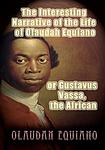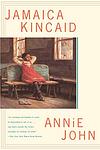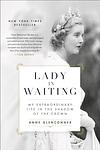The Greatest "Caribbean" Books of All Time
Click to learn how this list is calculated.
This list represents a comprehensive and trusted collection of the greatest books. Developed through a specialized algorithm, it brings together 284 'best of' book lists to form a definitive guide to the world's most acclaimed books. For those interested in how these books are chosen, additional details can be found on the rankings page.
Genres
Countries
Date Range
Reading Statistics
Click the button below to see how many of these books you've read!
Download
If you're interested in downloading this list as a CSV file for use in a spreadsheet application, you can easily do so by clicking the button below. Please note that to ensure a manageable file size and faster download, the CSV will include details for only the first 500 books.
Download-
1. Love in the Time of Cholera by Gabriel Garcia Marquez
This novel follows the story of Florentino Ariza and Fermina Daza, who fall passionately in love in their youth. However, Fermina eventually marries a wealthy doctor, leaving Florentino heartbroken. Despite this, Florentino remains devoted to Fermina for over fifty years, patiently waiting for her husband's death to have another chance at her love. The story is set against the backdrop of a cholera epidemic, serving as a metaphor for the transformative power of love and the destructive power of obsession.
-
2. The Interesting Narrative of the Life of Olaudah Equiano by Olaudah Equiano
This autobiographical book tells the story of an African man who was kidnapped from his homeland as a child and sold into slavery. The narrative follows his life as he is transported across the Atlantic, sold to various masters, and eventually purchases his own freedom. The book provides a detailed account of the horrors of the Middle Passage and the inhumane conditions of slavery, while also serving as a powerful testament to the human spirit's ability to overcome adversity.
-
3. A Supposedly Fun Thing I'll Never Do Again by David Foster Wallace
"A Supposedly Fun Thing I'll Never Do Again" is a collection of seven essays that blends humor, insight, and philosophical pondering. The author explores a wide range of topics, from the impact of television on contemporary literature to the despair of the American cruise industry, and even the nature of David Lynch's films. The book is a brilliant showcase of the author's unique ability to see the extraordinary in the ordinary, all while using his sharp wit and expansive intellect to explore the complexities of modern life.
-
4. Annie John by Jamaica Kincaid
The novel centers around the coming-of-age story of the protagonist, Annie John, in Antigua. Throughout her childhood and adolescence, she grapples with her complex relationship with her mother, her self-identity, and the colonial influence of the British on her island home. As she matures, her once close bond with her mother becomes strained, and she struggles with feelings of separation and independence. The narrative explores themes of colonialism, gender, and the complexities of mother-daughter relationships.
-
5. Omeros by Derek Walcott
"Omeros" is an epic poem that explores the lives of a small community in the Caribbean. The narrative intertwines the lives of characters such as fishermen, a housemaid, and a disabled veteran, all of whom embody various aspects of Caribbean history and culture. Drawing inspiration from Homer's Iliad and Odyssey, the narrative is not only a vivid portrayal of post-colonial Caribbean life but also a profound meditation on identity, civilization, and the human condition.
-
6. Indigo by Marina Warner
"Indigo" is a reimagining of Shakespeare's "The Tempest" set in the modern era. The book tells the story of a wealthy London businessman who is exiled to a Caribbean island where he uses his knowledge of science to control the environment and the island's inhabitants. His daughter, Miranda, grows up on the island, sheltered from the world and manipulated by her father's experiments. The story explores themes of colonialism, power, and the destructive potential of knowledge.
-
7. Guerrillas by V. S. Naipaul
"Guerrillas" is a novel set on a Caribbean island, exploring themes of race, politics, and power. The plot follows a group of characters, including a disillusioned Englishwoman, a struggling black activist, and a charismatic but dangerous mixed-race man who leads a band of guerilla fighters. As the tension and violence escalate, the novel delves into the complexities of post-colonial society and the struggle for identity and self-determination.
-
8. The Adventures and Misadventures of Maqroll by Alvaro Mutis
"The Adventures and Misadventures of Maqroll" is a collection of seven novellas that follow the life of Maqroll, a seafarer and adventurer. The stories, set in various locations around the globe, are filled with philosophical musings, poetic language, and vivid descriptions of exotic locales. Maqroll's encounters with a host of characters, from pirates to prostitutes, and his experiences with love, loss, and loneliness, all contribute to a richly textured narrative that explores the human condition and the nature of existence.
-
9. A Small Place by Jamaica Kincaid
This book offers a poignant and provocative look into the complexities of colonialism and its enduring impact on a Caribbean island. Through a blend of personal reflection and social commentary, the narrative delves into the island's history, the exploitation by colonial powers, and the tourism industry's role in perpetuating economic disparities and cultural erosion. The author's incisive prose challenges readers to confront the uncomfortable realities of a postcolonial world, where the beauty of the landscape contrasts sharply with the lives of its native inhabitants, who continue to grapple with the legacies of oppression and cultural identity.
-
10. Travels With Myself And Another by Martha Gellhorn
In this vivid memoir, a renowned journalist recounts her adventures across the globe during the mid-20th century, sharing tales of her journeys alongside a mysterious companion referred to as "another." With a sharp wit and a keen eye for detail, she navigates through various landscapes, from the treacherous terrains of China during the Sino-Japanese War to the unforgiving deserts of Africa. Her stories are filled with humor, humanity, and a relentless quest for truth, offering a window into the tumultuous world events of her time as well as a deeply personal narrative of a woman who lived fiercely and fearlessly, embracing the world with an insatiable curiosity.
-
11. Collected Poems by Derek Walcott
This anthology is a comprehensive collection of lyrical works by a Nobel laureate, showcasing a remarkable career spanning several decades. The poems weave together the lush tapestry of the Caribbean landscape, the complexities of colonial legacy, and the interplay of cultures that define the poet's homeland. With a masterful command of language and form, the poet explores themes of identity, history, and the enduring power of art. His work is characterized by its rich imagery, profound introspection, and a deep sense of place, offering readers a reflective journey through the personal and collective experiences that have shaped his vision of the world.
-
12. Alexander Hamilton by Ron Chernow
"Alexander Hamilton" by Ron Chernow is a comprehensive biography of one of America's founding fathers. The book chronicles Hamilton's life from his impoverished childhood in the Caribbean to his rise as a key figure in the American Revolution and his role in shaping the country's early government. Chernow delves into Hamilton's complex personality, his political and economic philosophies, and his tumultuous personal life, including his infamous affair with Maria Reynolds. The biography sheds light on Hamilton's lasting impact on American politics and economics, and his legacy as one of the most influential figures in the nation's history.
-
13. Crossing The River by Caryl Phillips
"Crossing The River" is a poignant and thought-provoking novel that explores the lives of African diaspora through multiple generations and continents. Through a series of interconnected stories, the book delves into themes of slavery, identity, and the search for belonging. From the harrowing journey of an enslaved African woman to the struggles of her descendants in the present day, the novel offers a powerful examination of the enduring impact of history and the complexities of human connections.
-
14. Lady In Waiting by Anne Glenconner
"Lady in Waiting" is a captivating memoir that offers an intimate glimpse into the life of a woman who served as a maid of honor at the Queen's Coronation and as a lady-in-waiting to Princess Margaret. Set against the backdrop of the British aristocracy, the book reveals the personal trials and tribulations of her own life, including her marriage to an unpredictable and unfaithful husband, her role in the royal household, and her unique friendship with the Princess. The narrative is a blend of humor, heartache, and historical insight, providing a behind-the-scenes look at the events and personalities that shaped the latter half of the 20th century from a perspective close to the crown.
-
15. The Problem of Slavery in the Age of Emancipation by David Brion Davis
"The Problem of Slavery in the Age of Emancipation" is a historical work that explores the complexities of slavery and the abolitionist movement during the Age of Emancipation. The book delves into the moral, political, and ideological challenges faced during this time, focusing on the struggles of enslaved Africans and African Americans. It also examines the role of colonization and the struggle to redefine "black" and "white" identities in the aftermath of slavery. The author uses a comparative approach, looking at the American, British, and French experiences of slavery and emancipation.
-
16. Anansi Boys by Neil Gaiman, Lenny Henry, Mónica Faerna
"Anansi Boys" is a fantastical novel that follows the life of Fat Charlie Nancy, a mild-mannered man who is shocked to discover that his estranged father was the African spider god, Anansi. After his father's death, Fat Charlie's life is turned upside down when he meets his charming and charismatic brother, Spider, who has inherited their father's powers. As Spider begins to wreak havoc on Fat Charlie's life, the two brothers embark on a wild adventure through the spirit world, encountering gods, ghosts, and other supernatural beings along the way. With humor, heart, and a touch of magic, "Anansi Boys" is a thrilling and imaginative tale about family, identity, and the power of storytelling.
-
17. The Chip Chip Gatherers by Shiva Naipaul
"The Chip Chip Gatherers" is a novel that explores the complex dynamics of a multi-generational Indo-Trinidadian family, the Khojas, living in Trinidad. The story revolves around the ambitions and struggles of the family patriarch, Egbert, as he attempts to rise above his impoverished beginnings and establish a successful life for his family. However, his efforts are constantly undermined by family squabbles, cultural tensions, and the harsh realities of post-colonial Trinidad. The novel provides a stark portrayal of the struggles faced by immigrants and the destructive power of envy and resentment within a family.
Reading Statistics
Click the button below to see how many of these books you've read!
Download
If you're interested in downloading this list as a CSV file for use in a spreadsheet application, you can easily do so by clicking the button below. Please note that to ensure a manageable file size and faster download, the CSV will include details for only the first 500 books.
Download















